Invited Talks
Talk with Mr. Balasingham Skanthakumar
This discussion focused on the democratic challenges and inclusive efforts concerning the Malayaha Tamil community in Sri Lanka on 16th of January 2025 at Social Scientist’s Association. It looked at both past and present issues, such as struggles for citizenship, education, and job opportunities. The community has faced unfair treatment, poor living conditions, and limited political voice for many years. Despite these challenges, there are efforts to improve their access to education, healthcare, and better jobs. Recognizing their important role in the plantation industry is also crucial for creating a fair and inclusive society.
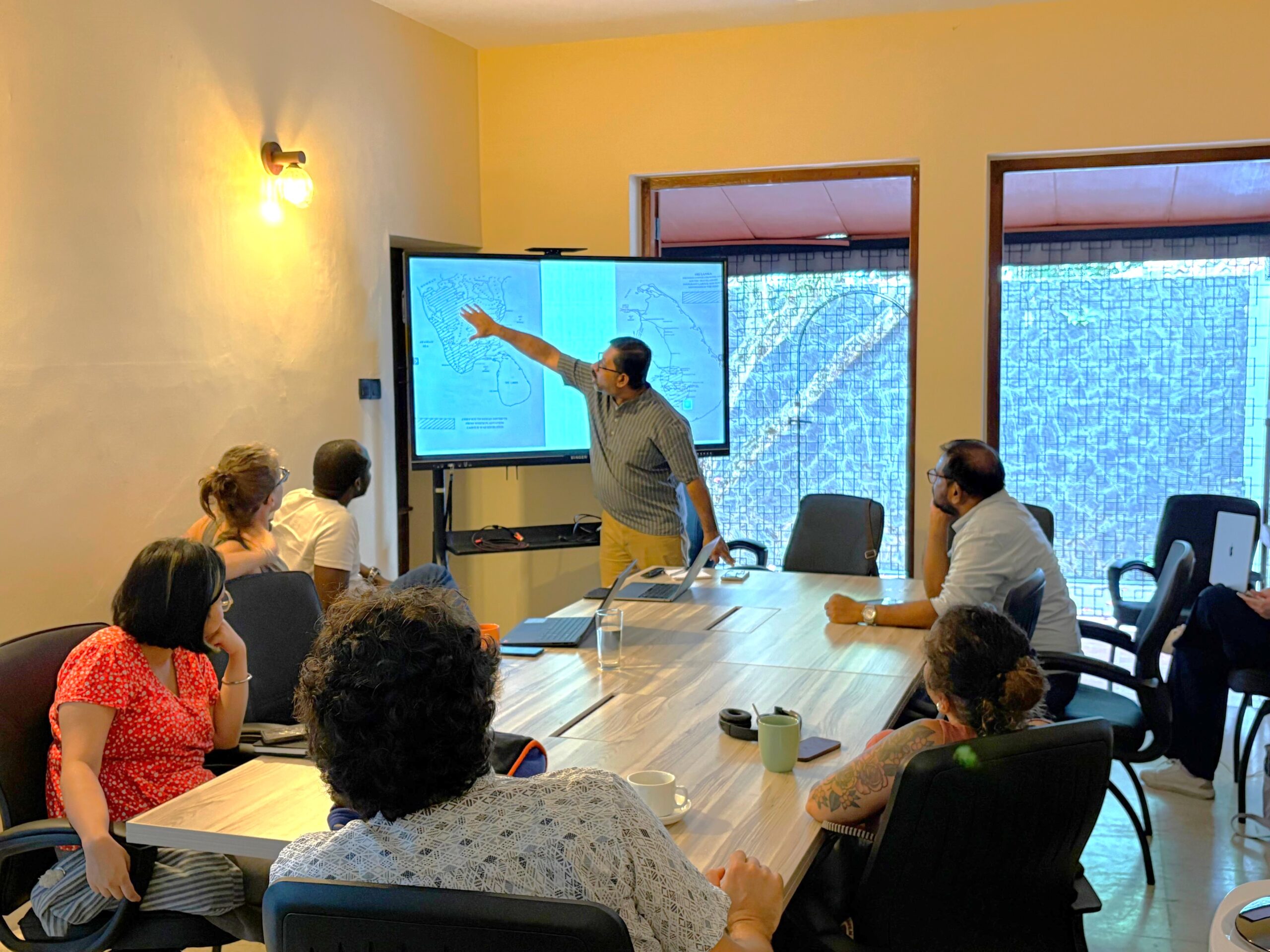

Talk with Mr. Balasingham Skanthakumar
This discussion focused on the democratic challenges and inclusive efforts concerning the Malayaha Tamil community in Sri Lanka on 16th of January 2025 at Social Scientist’s Association. It looked at both past and present issues, such as struggles for citizenship, education, and job opportunities. The community has faced unfair treatment, poor living conditions, and limited political voice for many years. Despite these challenges, there are efforts to improve their access to education, healthcare, and better jobs. Recognizing their important role in the plantation industry is also crucial for creating a fair and inclusive society.
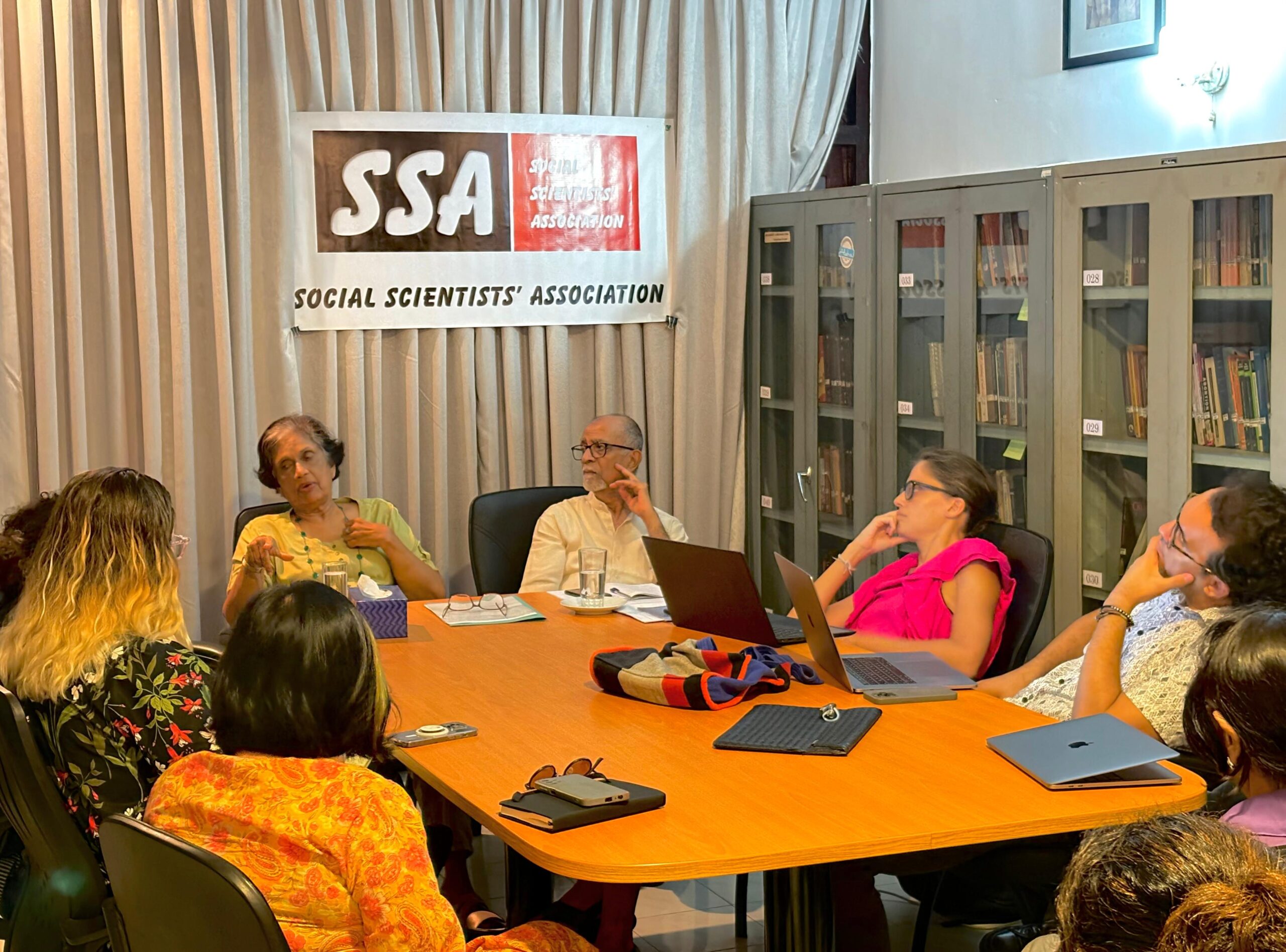
Talk with Former Executive President Chandrika Bandaranaike Kumaratunga
On the 29th of January 2025, the SSA invited former President Mrs. Chandrika Bandaranaike Kumaratunga to discuss the multi-pronged peace initiative she launched in 1994 as an attempt to prevent the further escalation of Sri Lanka’s civil war. The primary focus of the discussion was on the changes Mrs. Kumaratunga had aspired to introduce to the country’s constitution. Her constitutional draft, through which she hoped to reach a peace agreement with the LTTE, prioritised minority rights and focused on abolishing the executive presidency. The discussion illuminated the obstacles she faced while navigating the volatile political landscape of her time and highlighted her dedication towards fostering peace in the country.

Talk with Former Executive President Chandrika Bandaranaike Kumaratunga
On the 29th of January 2025, the SSA invited former President Mrs. Chandrika Bandaranaike Kumaratunga to discuss the multi-pronged peace initiative she launched in 1994 as an attempt to prevent the further escalation of Sri Lanka’s civil war. The primary focus of the discussion was on the changes Mrs. Kumaratunga had aspired to introduce to the country’s constitution. Her constitutional draft, through which she hoped to reach a peace agreement with the LTTE, prioritised minority rights and focused on abolishing the executive presidency. The discussion illuminated the obstacles she faced while navigating the volatile political landscape of her time and highlighted her dedication towards fostering peace in the country.
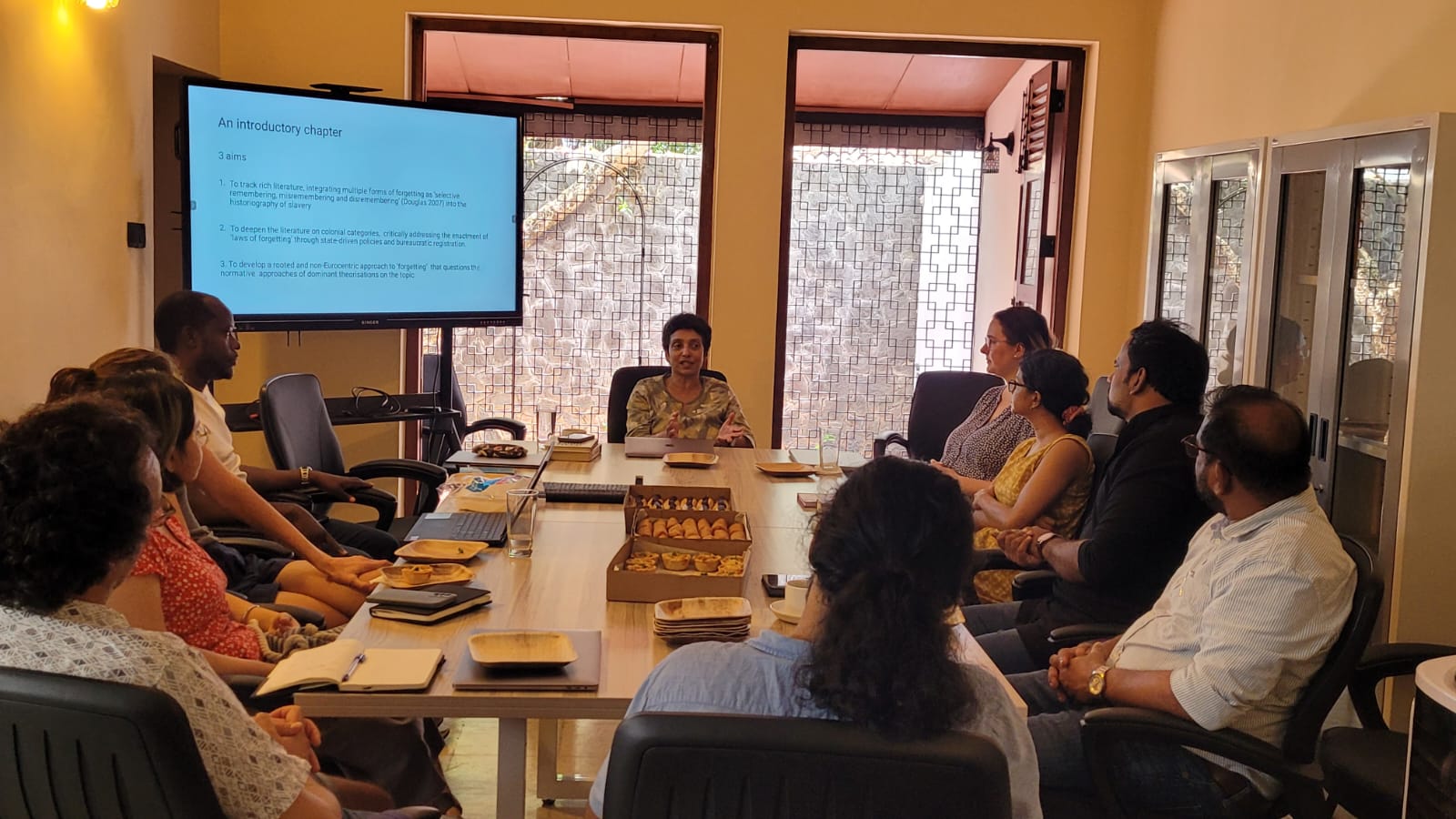
Talk with Prof. Nira Wicramasinghe
On the 16th on of January 2025, the SSA hosted Dr. Nira Wickramasinghe to conduct a discussion on slavery in the Indian Ocean world. The discussion explored networks of slavery within the Indian Ocean region with a particular focus on slavery in Sri Lanka from the period of 1650 to 1850. The onus of the discussion was placed on one question- How is it that Sri Lanka has forgotten its historical involvement in slavery? Dr. Wickramasinghe’s presentation explained that many Sri Lankan slaves, a majority of whom were Indonesian or Indian in origin, were able to integrate into broader Sri Lankan society through a protracted period of forgetting. In this lens, the discussion examined how forgetting does not always hold a negative connotation- by changing their names, adopting Christianity, and moving away from areas that tied them to their slave lineage, these individuals were able to shed their former identity and encourage a mass forgetting that allowed them to become anonymous in Sri Lankan society.
Talk with Prof. Nira Wicramasinghe
On the 16th on of January 2025, the SSA hosted Dr. Nira Wickramasinghe to conduct a discussion on slavery in the Indian Ocean world. The discussion explored networks of slavery within the Indian Ocean region with a particular focus on slavery in Sri Lanka from the period of 1650 to 1850. The onus of the discussion was placed on one question- How is it that Sri Lanka has forgotten its historical involvement in slavery? Dr. Wickramasinghe’s presentation explained that many Sri Lankan slaves, a majority of whom were Indonesian or Indian in origin, were able to integrate into broader Sri Lankan society through a protracted period of forgetting. In this lens, the discussion examined how forgetting does not always hold a negative connotation- by changing their names, adopting Christianity, and moving away from areas that tied them to their slave lineage, these individuals were able to shed their former identity and encourage a mass forgetting that allowed them to become anonymous in Sri Lankan society.

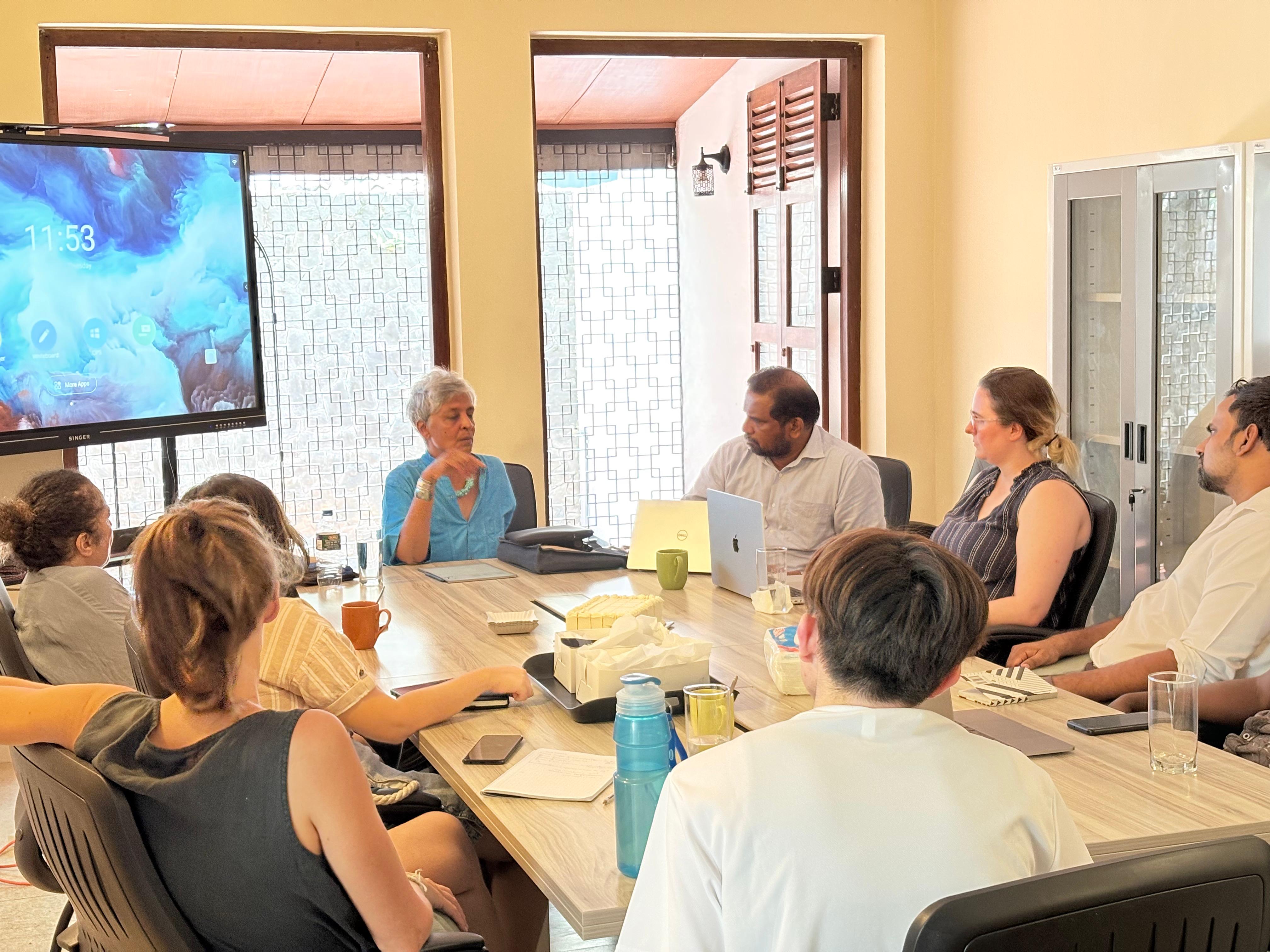
Talk with Prof. Geeta Patel
The SSA hosted Prof. Geeta Patel on the 13 th of February 2025 to discuss the complex relationship between pensions and democracy. She elaborated this relationship under the topic “Pensions, the Fiscal State, and Democracy”. The discussion was set in the temporal context of 18 th century Madras. The goal of establishing this context was to de-centre the discussion from the Western narrative of economy and democracy, particularly in terms of pensions and the creation of benevolent states. Drawing from this context, the discussion also analysed the history of the East India Company (EIC) in this region and its relationship with the people of Madras. As such, there was thread of the conversation that highlighted how the EIC exploited and underpaid its workers prompting them to establish the funding for their pensions by themselves. However, an important point in the discussion was on how the EIC utilised these funds for its own
benefits and left workers bereft of any substantial economic scaffolding. Thereby, the discussion was able to highlight the struggle behind gaining pensions and the history of labour exploitation that lies behind it.
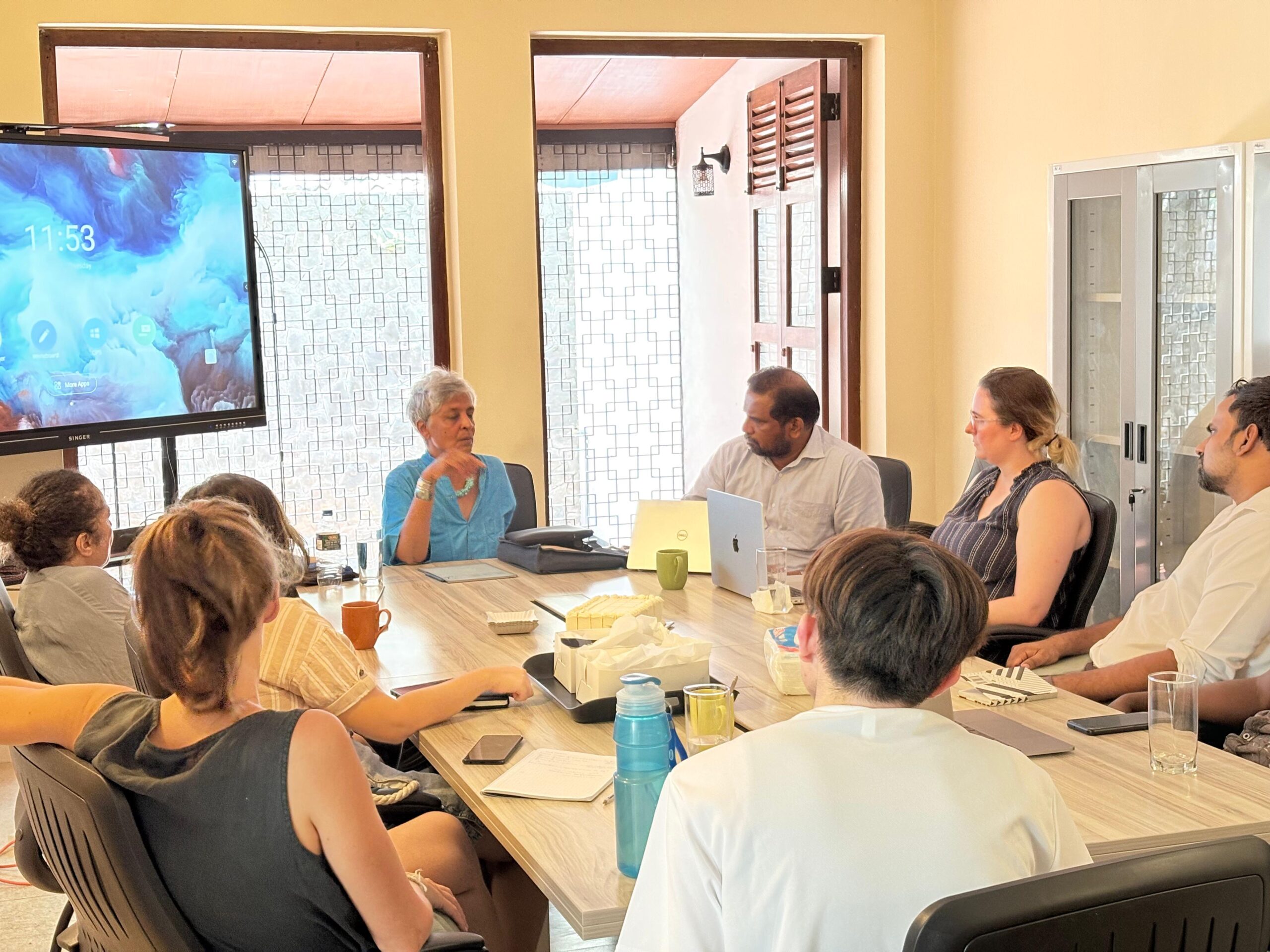
Talk with Prof. Geeta Patel
The SSA hosted Prof. Geeta Patel on the 13 th of February 2025 to discuss the complex relationship between pensions and democracy. She elaborated this relationship under the topic “Pensions, the Fiscal State, and Democracy”. The discussion was set in the temporal context of 18 th century Madras. The goal of establishing this context was to de-centre the discussion from the Western narrative of economy and democracy, particularly in terms of pensions and the creation of benevolent states. Drawing from this context, the discussion also analysed the history of the East India Company (EIC) in this region and its relationship with the people of Madras. As such, there was thread of the conversation that highlighted how the EIC exploited and underpaid its workers prompting them to establish the funding for their pensions by themselves. However, an important point in the discussion was on how the EIC utilised these funds for its own benefits and left workers bereft of any substantial economic scaffolding. Thereby, the discussion was able to highlight the struggle behind gaining pensions and the history of labour exploitation that lies behind it.
